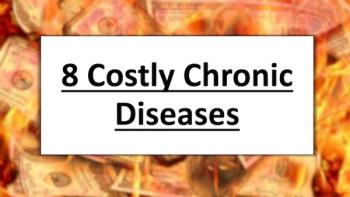
Women in medicine experience more negative effects than their male counterparts.

Women in medicine experience more negative effects than their male counterparts.

The Friday 5 from Endocrinology Network is a list composed by the Endocrinology Network editorial staff aimed at highlighting relevant coverage from endocrinology and endocrinology-related fields.

The Friday 5 from Practical Cardiology is a list composed by the Practical Cardiology editorial staff aimed at highlighting relevant coverage of news in cardiovascular medicine.

The Friday 5 from Rheumatology Network is a list composed by the Rheumatology Network editorial staff aimed at highlighting relevant coverage of the latest news in rheumatology.

The Friday 5 from Practical Cardiology is a list composed by the Practical Cardiology editorial staff aimed at highlighting relevant coverage of news in cardiovascular medicine.

The Friday 5 from Endocrinology Network is a list composed by the Endocrinology Network editorial staff aimed at highlighting relevant coverage from endocrinology and endocrinology-related fields.

The Friday 5 from Rheumatology Network is a list composed by the Rheumatology Network editorial staff aimed at highlighting relevant coverage of the latest news in rheumatology.

The Friday 5 from Endocrinology Network is a list composed by the Endocrinolgoy Network editorial staff aimed at highlighting relevant coverage from endocrinology and endocrinology-related fields.

The Friday 5 from Practical Cardiology is a list composed by the Practical Cardiology editorial staff aimed at highlighting relevant coverage of news in cardiovascular medicine.

The rising age of the U.S. population is driving many changes in healthcare, including the increasing demand for specialization.

Getting paid requires accurate documentation and correct code selection. In our coding case studies, we explore the correct coding for a specific condition based on a hypothetical clinical scenario. This particular scenario involves a patient presenting with symptoms of depression. See if you can choose the correct codes.


Helping patients take the next step on making healthy choices.

When it comes to myths surrounding obesity, the list of misconceptions is as long as the myriad of complications it can cause.

Here are eight of the most costly chronic diseases and conditions, along with three of their biggest risk factors.

There is convincing evidence that counseling interventions improve blood pressure, lipid and fasting blood glucose levels, body weight/adiposity and eating habits. Improvement in these areas will strengthen heart health.

Telehealth has advanced by leaps and bounds in the last year, as medical practices adjust to the COVID-19 pandemic. Virtual visits, remote patient monitoring (RPM), continuous glucose monitoring (CGM) and other tools are helping physicians meet their patients where they are needed.

About two-thirds of COVID-19 hospitalizations across the country are tied to at least one of four different pre-existing conditions.

Since 2013, the Obesity Algorithm has undergone yearly updates to help healthcare professionals stay abreast of the latest developments in obesity medicine.

Donald M. Berwick, MD, MPP, the former CMS administrator, discusses cost variation in cancer care found through the digital classification system the COTA Nodal Address.

Patient impact and management tips for physicians

Getting a handle on the pandemic must include efforts to address the obesity and mental health crises as well

A recent survey asked more than 3,000 people to rank the importance of seven common information sources when deciding whether to get vaccinated for COVID-19.

The right way to treat and talk about obesity, on this week’s Medical Economics Pulse.

How physicians are addressing obesity as a chronic condition and helping patients lose weight.